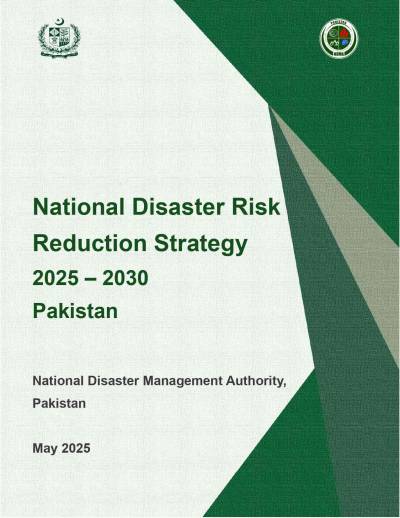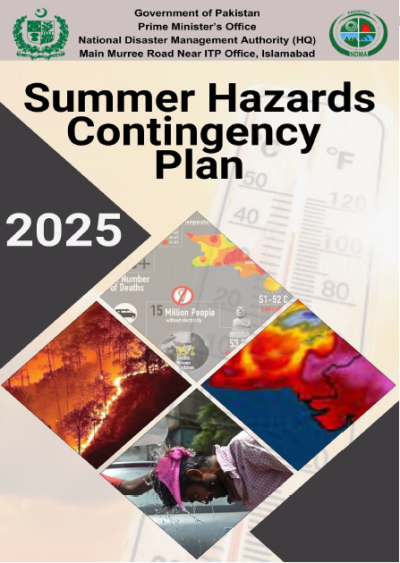
NDMA -WINTER CONTINGENCY PLAN (OCTOBER TO DECEMBER 2025)
The aim of the Winter Contingency Plan (October to December 2025) is to ensure timely preparedness, effective coordination and efficient response to winter-related hazards across Pakistan, including extreme cold, heavy snowfall, avalanches, fog, smog, landslides, and rain-induced emergencies. The plan seeks to minimize loss of life, protect critical infrastructure, maintain essential services and strengthen community resilience through proactive measures and inter-agency collaboration.

National Disaster Risk Reduction Strategy 2025 – 2030 Pakistan
Pakistan has long been vulnerable to a range of natural and human-induced disasters, including earthquakes, floods, droughts, and climate-related emerging hazards such as glacial lake outburst floods (GLOFs), heatwaves, forest fires and shifting monsoon patterns. These disasters disrupt lives, undermine economic stability, and set back development progress. The National Disaster Risk Reduction Strategy (NDRRS) 2025-2030 provides a comprehensive framework to mitigate these risks, enhance preparedness, and foster resilience through proactive planning, inclusive governance, and technological innovation.

Monsoon Contingency Plan 2025
This document provides response guidelines for all disaster management stakeholders at National and Provincial / State levels for proactive and inclusive preparedness and effective response to any flood like situation as per contingencies based on Monsoon Seasonal Outlook 2025 and other likely emergencies in the country.

NDMA - Summer Hazards Contingency Plan 2025
NDMA Summer Hazards Contingency Plan 2025 has been prepared in coordination with all disaster management stakeholders, both at federal and provincial levels based on analysis of seasonal outlook by the Pakistan Meteorological Department (PMD) and relevant technical input from NDMA Tech Team. In this Plan, guidelines have been outlined for all disaster management tiers and relevant stakeholders for adopting a proactive approach towards all aspects of mitigation, preparations against the most probable and against possible worst-case scenarios to coordinate a timely response.

Integrated National Search & Rescue (INSaR)
The concept Paper on Integrated National Search & Rescue (INSaR), highlights the area specific and contingency based search and rescue teams, embedded with local resource, humanitarian partner/ philanthropist with futuristic outlook, organized, trained, equipment and structured for an effective, efficient and timely response.
